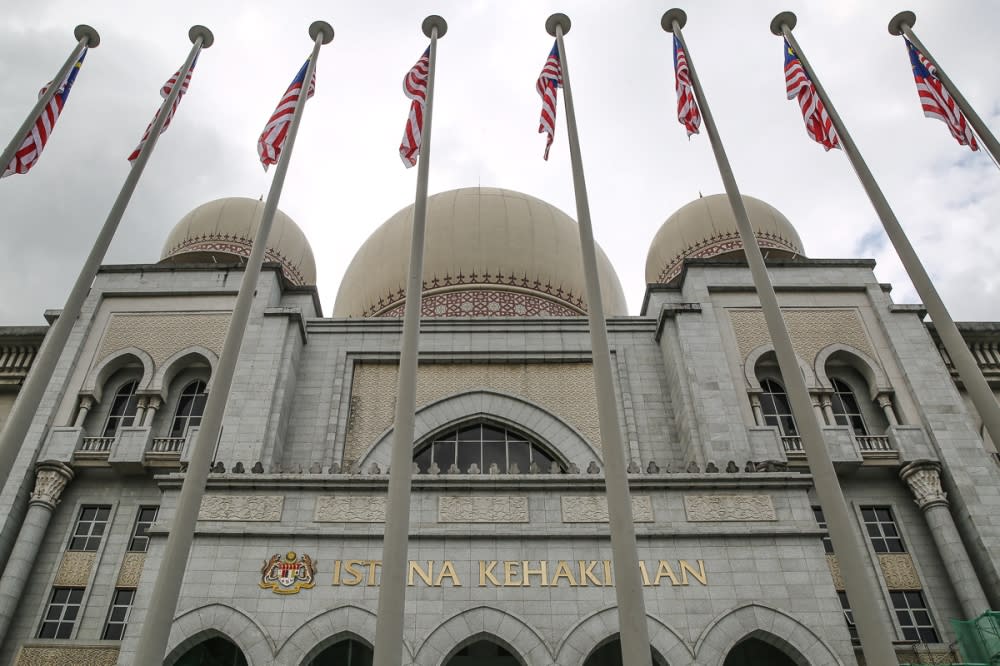Proposed amendments to Act 355 unconstitutional as Shariah criminal offences already part of existing criminal laws governed by Parliament, interfaith council says

KUALA LUMPUR, April 2 — The proposed amendments to the Shariah Courts (Criminal Jurisdiction) Act 1965 (Act 355), which includes the proposal to increase penalties for Shariah criminal offences, will be unconstitutional as such offences are already part of existing criminal laws enumerated under the Federal Constitution (FC), an interfaith council said today.
The Malaysian Consultative Council of Buddhism, Christianity, Hinduism, Sikhism and Taoism (MCCBCHST) said enhanced sentencing powers granted to Shariah Courts would allow for Hudud-related offences — like theft, robbery, adultery, sodomy and intoxication — to be tried under Islamic criminal law.
However, MCCBCHST noted the aforementioned offences were already part of the Federal Constitution’s Ninth Schedule’s List I (Federal List) and these additional powers will therefore be unconstitutional.
Under the FC’s Ninth Schedule, there are two different lists that say what the federal government — via Parliament — has powers to make laws on, and what the state governments — via their state legislative assemblies — have powers to make laws on.
List I is the Federal List which states what Parliament can make laws on, while List II or the State List provides a separate and shorter list of what state governments can make laws on.
“Further, these enhanced sentencing powers will go against the very grain and basic structure of the Constitution.
“It will also mean setting-up a parallel Shariah criminal legal system, which is not possible under our present scheme of things having a supreme constitution,” it said in a statement.
They noted that PAS president Tan Sri Abdul Hadi Awang had in Parliament tabled a Private Members’ Bill in July 2016 to introduce amendments to the ‘3-5-6 safeguard’ where the Shariah Court is currently empowered to mete out imprisonment not exceeding three years, up to RM5,000 fine and up to six strokes of the cane.
Abdul Hadi’s Bill had sought to raise the Shariah courts’ maximum sentencing limits to 30 years’ jail, RM100,000 fine and 100 strokes of the cane.
Citing the Federal Constitution, MCCBCHST said Article 74 demarcated the power of Parliament and the respective state legislatures to make laws.
“By Article 74, if there is any inconsistency between the Federal Law and State Law, the Federal Law shall prevail to the extent of the inconsistency and the inconsistent law being void,” it said.
MCCBCHST also sought to clarify Minister in the Prime Minister’s Department (Religious Affairs), Datuk Mohd Nai’im Mokhtar’s statement on the government’s intention to amend the Federal Constitution and avoid existing overlaps in jurisdiction between the civil and Shariah courts.
The interfaith council explained that there is no overlap of jurisdiction between civil and Shariah courts as claimed since the issue stemmed from state legislative bodies passing enactments to allow Shariah courts to try criminal offences beyond its Ninth Schedule limit.
“Thus, the illegal encroachment into the Federal List was done by the state legislature,” it said.
As an example of illegal encroachment, MCCBHST cited the recent landmark Federal Court judgment in deciding that the 16 provisions on Shariah criminal offences in Kelantan were unconstitutional and invalid as the state had no power to make these laws.
While many criminal law offences (such as theft, robbery, rape and corruption) would naturally also go against the precepts of Islam, the Federal Court in its ruling said only Parliament has the power to make such laws as such offences fall within the “criminal law” category, and that this is based on the Federal Constitution’s separation of the law-making powers between Parliament and the state legislatures.
Pursuant to Mohd Nai’im’s recent statement on the conclusion of engagement talks with states on the proposed amendment, MCCBCHST said it was appealing to the federal government to have discussions with all stakeholders on proposed amendments.



